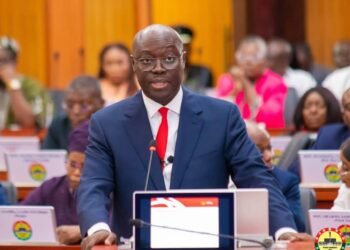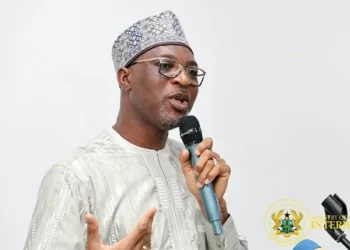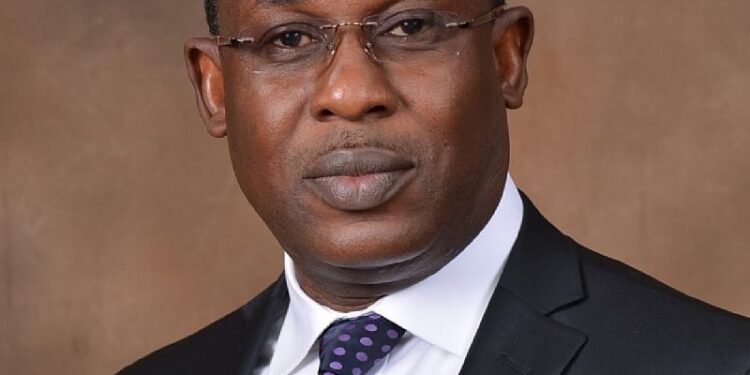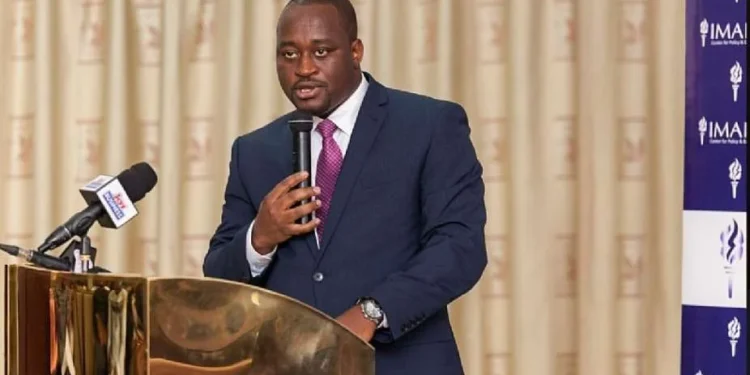The Asantehene, Otumfour Osei Tutu II, has expressed serious concern over the escalating departure of healthcare and educational professionals from Ghana, likening the brain drain to a modern form of colonization that should be discouraged.
The Ashanti kingdom’s leader emphasized the urgency for government’s intervention during the 57th Congregation at KNUST, urging sustainable solutions like job creation through entrepreneurship.
Describing the trend as alarming, he called for immediate measures to address the challenges prompting professionals to seek opportunities abroad, highlighting the importance of retaining skilled individuals for the nation’s development.
“Our country is faced with enormous challenges that demand our immediate attention and collective action. From the economy to climate change and the exodus of our professionals in the health and the education sector. We must wholeheartedly be able to unite to ensure sustainable solutions for the betterment of our nation. One of the most current challenges confronting our nation is brain drain.”
Otumfour Osei Tutu II
Addressing the issue of illegal mining, the Asantehene urged the government to follow his example of destooling Chiefs involved in the practice. He expressed confidence that decisive actions by the government, similar to his, would effectively tackle the problem of illegal mining.
“I call on all stakeholders to help the government flash out these illegal miners…And I urge the government to take actions in the fight against galamsey.”
Otumfour Osei Tutu II
In response to the challenges posed by the Akosombo Dam spillage, Otumfour Osei Tutu II emphasized the need for substantial measures to address climate change, especially concerning water resources.
He also advocated for a heightened focus on disaster management to ensure effective preparedness during such incidents.
Brain Drain, An existential Threat To Ghana’s Development
Brain drain, the emigration of skilled professionals, particularly in health and education, from Ghana to seek better opportunities abroad, is a growing concern with multifaceted impacts on the nation’s economy. The mass departure of doctors, nurses, teachers, researchers and other professionals creates a serious human resource shortage, notably in healthcare and education. The strain can be seen in overcrowded healthcare facilities, lengthier wait times, and lower educational levels. This problem also signifies a loss of financial investments invested in these professionals’ education and training. Furthermore, Ghana loses creativity and knowledge, impeding research and technological advancements.

The economic effects are exacerbated by the departure of persons whose education was supported by the country, resulting in a drain on financial resources without equivalent long-term contributions to the national economy. Retaining and retaining qualified individuals entails developing a suitable atmosphere for career advancement, competitive compensation, and improved working circumstances. Initiatives should target employment creation through entrepreneurship, encouraging professionals to find opportunities within the country.
Strategic solutions addressing the core causes of brain drain, such as inadequate infrastructure, limited career progression opportunities, and low salary, necessitate collaboration among governments, industry leaders, and civil society.
While the hurdles are great, it is critical to recognize the possible benefits. Remittances, investments, and knowledge transfer are all ways that the diaspora can help. Ghanaians working overseas can establish worldwide networks and promote partnerships for commerce and technology transfer. Returnees may bring a variety of talents, experiences, and viewpoints, improving local enterprises. The World Bank Migration and Development 2021 Report indicated that Ghana made USD 3 billion from remittances.
Also, the diaspora has served as cultural ambassadors, drawing international attention and investment. Professionals who return with enhanced abilities have a positive impact on the local workforce and industries. In tourism, Ghana has relied heavily on its citizens in the diaspora to drive visitors to the country, particular under the ‘Year of Return’ project.
Notwithstanding, the long term impact on the country is immeasurable.
READ ALSO: 2024 Budget; PwC Calls For Creative Revenue Collection Strategies In Informal Sector























